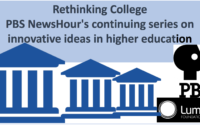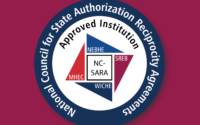Reflections on Preparing Educators to Evaluate the Efficacy of Educational Technology: An Interview With Joseph South
Joseph South, an educational researcher, technology consultant, and former director of the U.S. Office of Educational Technology participated in a research initiative on Educational Technology Efficacy Research organized by the Jefferson Education Accelerator, Digital Promise, and the Curry School of Education at the University of Virginia. The working group in which he participated, one of […]
















